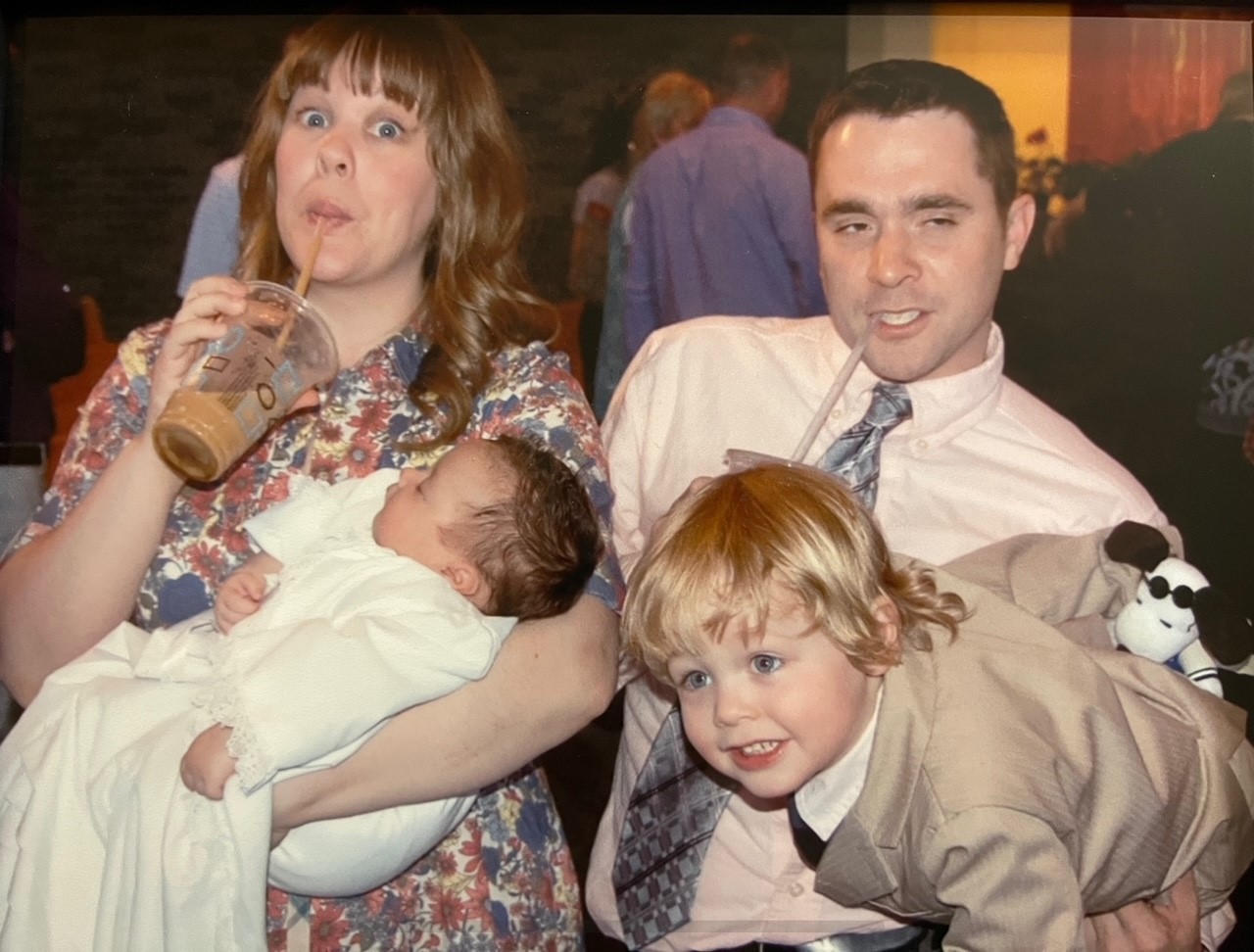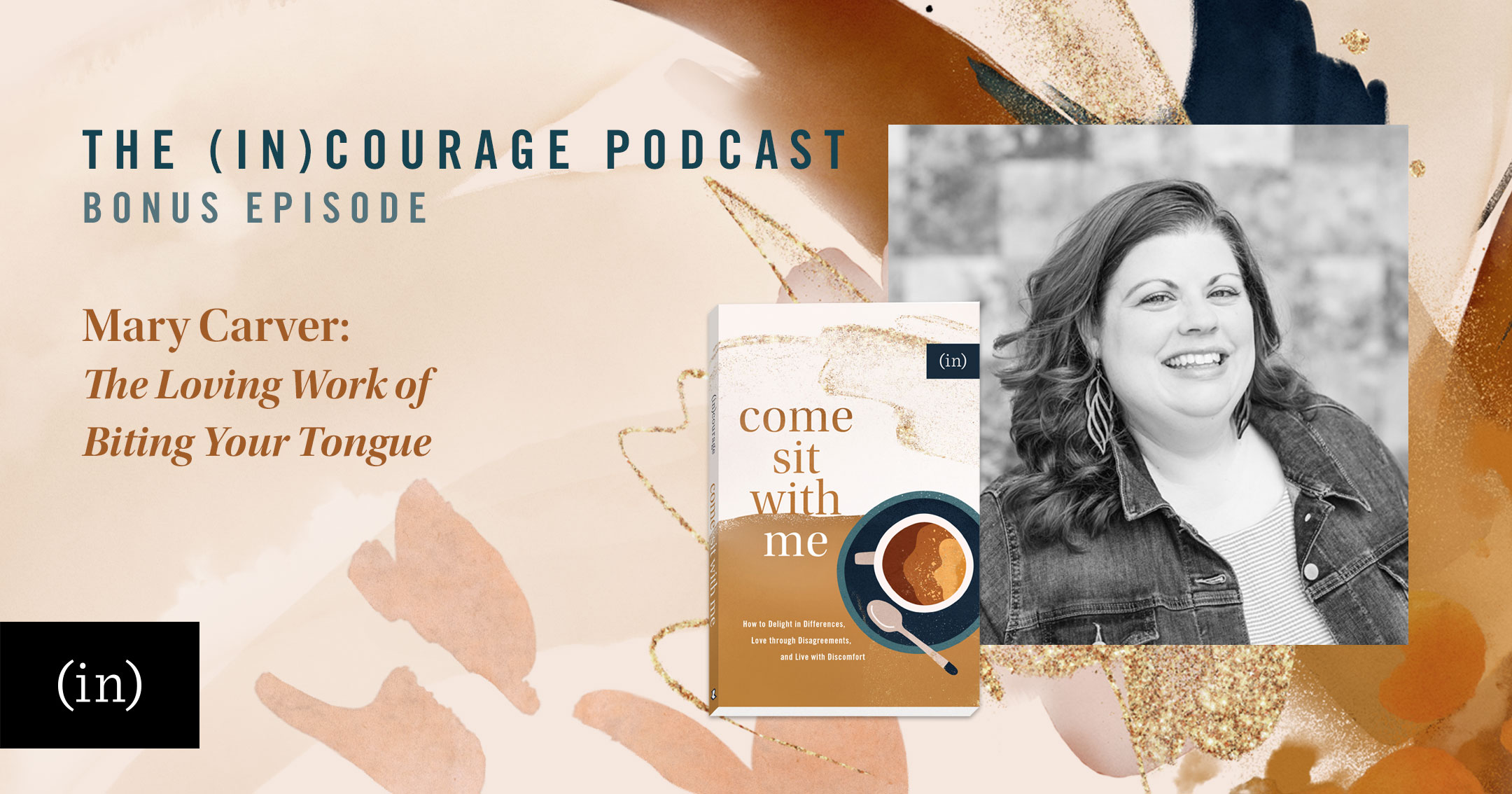After moving my mother-in-law into an assisted living facility this past spring, my family helped organize, clean, and empty her home. Let me tell you, this activity teared us right up. From 4th grade through high school, my husband lived in this home. Since 1993, when David and I began dating, this home welcomed me with the widest arms. Our kids — military kids who’ve lived in several states and across one ocean — knew this home to be a fixed point of familiarity amidst constant change. Chock-full of good memories, this home has been a source of comfort and consistency for all of us, and we were rather tender to the thought of telling it goodbye.
After a few interior updates, David and his siblings put the house on the market. This fall, it sold. In one way, it was a relief and a gift to know the house would bless another family as it had ours. In another way, it was a bigger loss, one that solidified the fact that we won’t spend any more holidays or regular days in that home.
While I love Colorado and the life we’ve made here, I occasionally still get homesick for the towering oak trees and tumbling creeks of the Oklahoma prairie where I grew up.
And now, I miss a home that’s no longer in the family.
I’m someone who builds strong attachments to people, yes. But I’ve learned I’m a girl who builds strong attachments to places as well. I can find myself so homesick for a place it makes me heartsick. With Christmas less than a month away, I feel this all the more acutely.
Because of this difficult change and a dozen others recently experienced, I know I stand at the end of an era.
While I’ve undoubtedly seen the goodness of the Lord in the land of the living over the past several years, it’s also been several years of arriving to December feeling like I’ve finished a year-long marathon. Losses have built up over time, and this Christmas season, I’m tired as can be.
Last year, I wrote about how much I’d love for Real Life to take a vacation during Christmas. After all, it interferes with my Christmas “Land of the Sugar Plum Fairies” magic and merry. This year, I don’t need Real Life to take a vacation as much as I need my own Christmas expectations to take a vacation. Because your girl here? She can shoot some sky-high expectations on experiences and people. Most of all, I pile them on myself and then get mighty disappointed when my expectations meet my human limitations, especially at Christmastime.
In light of this, I’m intentionally mitigating my expectations this season. That is, with so much life change, I’m changing and minimizing what I expect this Christmas so that I make room to celebrate – –to enjoy! — my actual Christmas. Here’s what that looks like for me:
1. Choosing my family’s favorite traditions and letting the rest go. When big changes are the way of life, I typically double down on my traditions because they are touchpoints of familiarity amidst the flux. At this time of year, I’m typically inclined to bake a dozen different treats. I want to watch the Village Seven Presbyterian Christmas Concert. I want to decorate to the hilt. I want to see every neighborhood’s Christmas decorations. And truly, I love doing every one of those things — but they aren’t the most important things to my family. Because of my decreased bandwidth this year, there will be less doing of every extra tradition to make room for more enjoyment of the traditions we choose to do.
2. Expecting a situation or two to arise this Christmas that won’t be ideal. Jesus, our Good News of Great Joy (Luke 2:10), had newly arrived on this earth when King Herod tried to hunt Him down and end His life. From the beginning, the enemy has tried to ruin Christmas. In one way or another, why wouldn’t I expect him to try to do the same for followers of Jesus like me? I’m onto him, and I refuse to allow bad behavior or bad circumstances to steal my Christmas joy.
3. Lighting a candle in the evening. I’ll light a candle every evening to remember and celebrate that not even the threat of death or death itself can extinguish the hope found in the Light of the World (John 8:12). I will do this as a reminder to keep looking up to Jesus instead of out toward my circumstances.
If you’re in the midst of a lot of change or loss, I hope you feel comfortable letting Christmas come to you as it is, without heavy expectations. Because here’s the easy-going truth behind the season: Jesus came down to us. Jesus came down to encourage, not to exhaust. He came to lift our burdens, not lay on expectations. What’s more, Jesus arrived to mighty tired parents, so bringing our tired selves to the manger is perfectly appropriate.
Dear one, may your own Christmas expectations of experiences, of others, and of yourself be minimal and manageable. And may your heart prepare Him room by simply expecting Jesus this Christmas: Christ around you, Christ in you, and Christ always, always for you.






